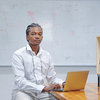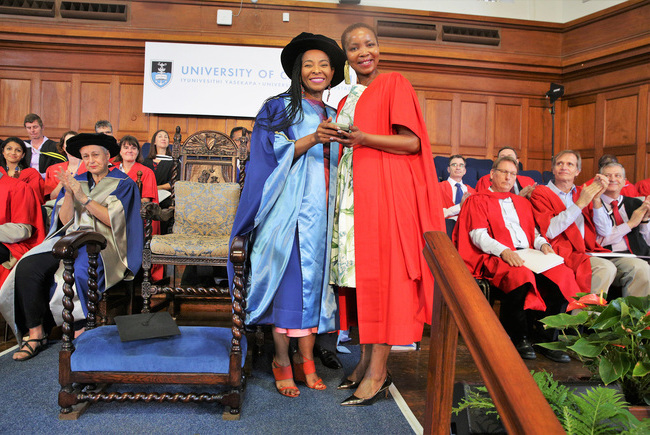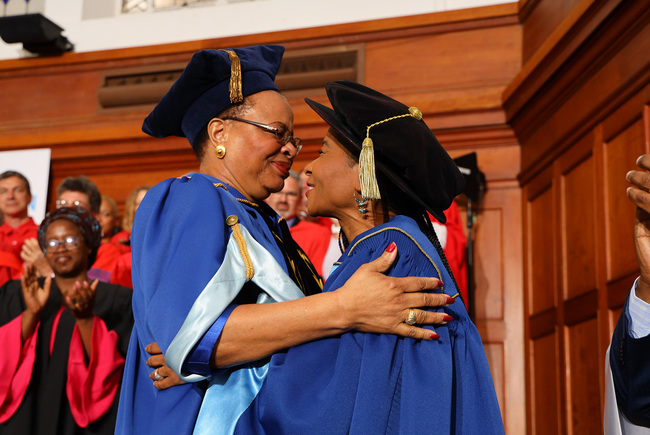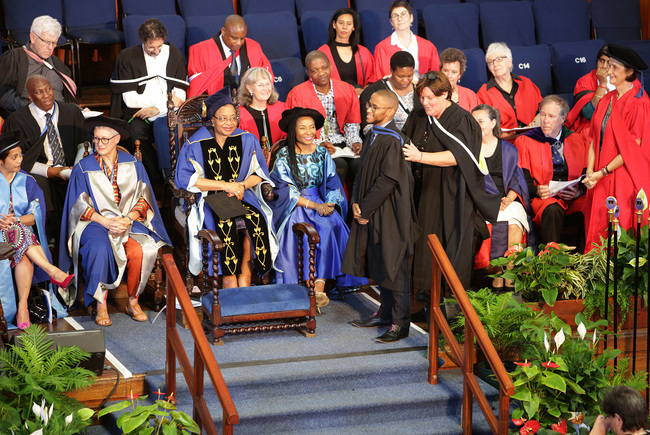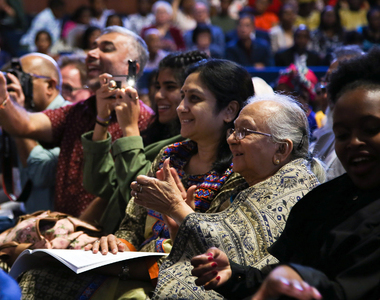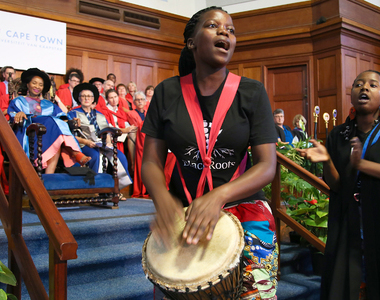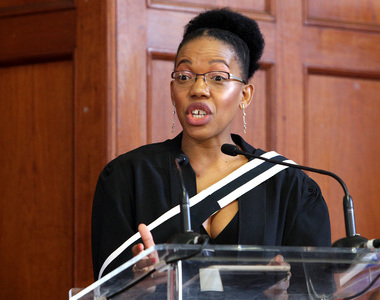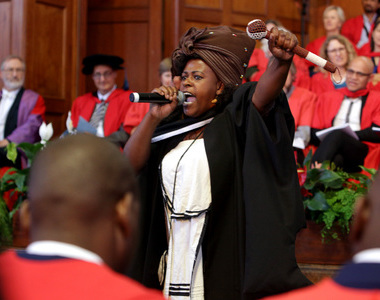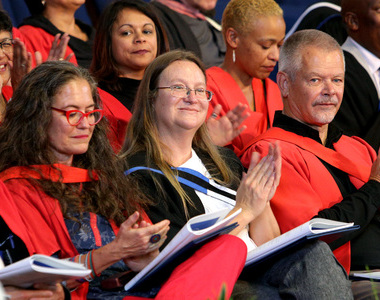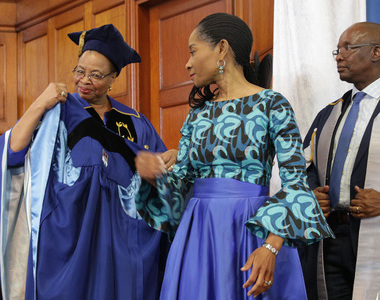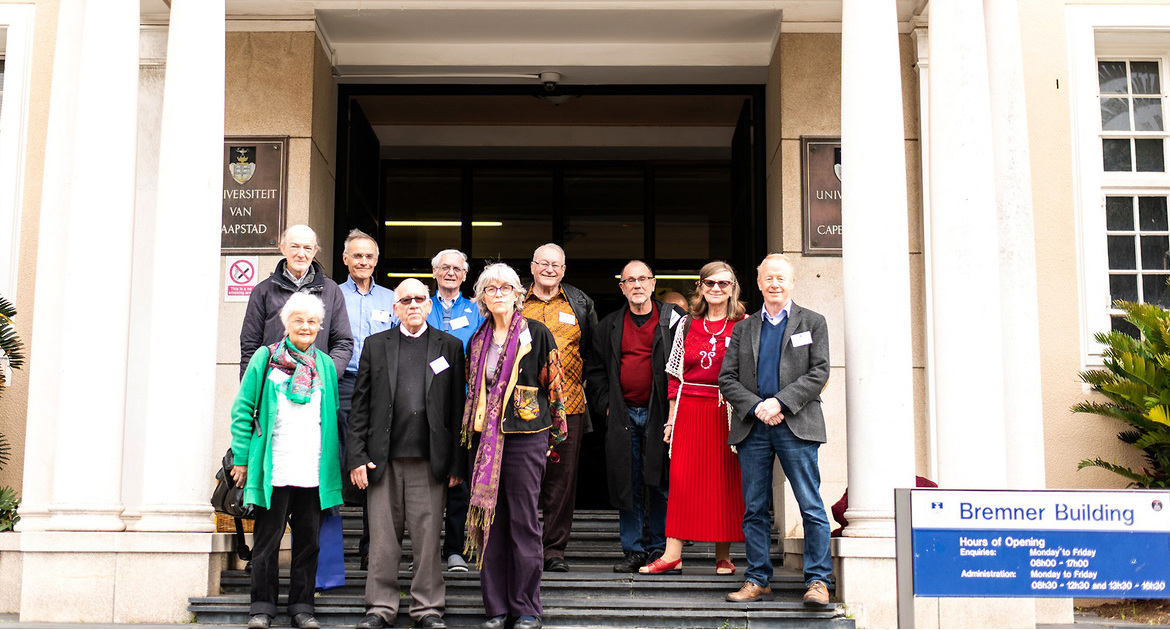Levelling the maths, physics playing field
04 March 2019 | Story Niémah Davids. Photo Brenton Geach. Read time 7 min.
South Africa continues to face a dearth of qualified engineers, and a final-year mechanical engineering student in UCT’s Faculty of Engineering & the Built Environment (EBE) says he not only knows why, he’s also doing something about it.
According to Thabang Sebetoane, inadequate coaching and mentoring at high-school level, especially in underprivileged communities in South Africa, contributes to the failure to optimally prepare matrics for university life – and an engineering degree.
That, in turn, results in high drop-out rates at first-year level, ultimately resulting in a significant shortage of qualified engineers in the longer term.
Sebetoane, a maths and physics aficionado, has seen this firsthand, with several of his friends unable to cope with the maths and physics that the degree demands.
“I knew we needed an intervention,” he said.
In response, he established the mentoring and tutoring non-profit organisation Tshehetso, which works closely with matric pupils to groom them for what’s ahead as they begin their engineering studies.
“Tshehetso aims to level the playing field between quintile 1 and quintile 5 schools, and to provide children in poorer communities with the same training and learning opportunities that children in more affluent schools are exposed to,” Sebetoane explained.
“Tshehetso aims to level the playing field between quintile 1 and quintile 5 schools, and to provide children in poorer communities with the same training and learning opportunities that children in more affluent schools are exposed to.”
Planting the seed
After five students in Sebetoane’s friendship circle scored bad grades and failed their first year, he was left feeling “incredibly sad”. Like him, they had endured a tough upbringing due to socio-economic challenges and had travelled from the Free State to Cape Town to pursue their degrees at UCT. They all had hopes of building a better life for themselves and their families.
“When they dropped out, it was so sad for me. At the end of our first year I was the only one left. My friends really struggled to cope and couldn’t adapt to the level of teaching.
“University maths and physics is different to what kids are taught in school. The pace is also so much faster. They got left behind,” he recalled.
As a second-year student and already a recruit in the South African Air Force, Sebetoane observed the same trend among other first-year students. Many came from quintile 1 and 2 schools in low-income communities around the country, and struggled with the school-to-university transition and the level of work the course demands.
He was determined to turn the situation around, reduce the dropout rate in year one, and grow the engineering student cohort.
Sebetoane put pen to paper and submitted a written proposal to Tate Makgoe, MEC For Education in the Free State. In it, he highlighted the plight faced by engineering students at tertiary level and suggested his intervention to assist with solving the problem.
His proposal focused on the shortage of engineers in the country and the need to address this by developing matrics via coaching, mentoring and tutoring, especially in maths and physics.
After scoring six distinctions in his matric year and earning a spot on the Free State’s top 100 matric learners’ list that year, Sebetoane was in a great position to provide the necessary assistance. He also happens to love maths and physics.
Makgoe responded positively, agreeing to make funding available for the rollout of the Tshehetso project at selected schools.
“I was so happy. Some ask me why the Free State? But that is my home. I understand the dynamics there, the challenges children face, and there’s no better place to start than at home,” Sebetoane said.
Bridging the gap
He explained that Tshehetso bridges the gap between high school and university, preparing matrics for their first year as engineering students. Pre-university training programmes include coaching on how to respond to the level of teaching, as well as schooling and quizzing the learners on the type of maths and physics they can expect.
It doesn’t end there. Sebetoane and his team of tutors also help with the university enrolment process, and once candidates are accepted, Tshehetso runs support camps before the start of the academic year. These offer an “overview on what’s to come”.
Once the new cohort is settled in, weekly interactive revision classes are hosted to help the students revise coursework from training manuals provided by Tshehetso. Students also write weekly maths and physics tests to assess their progress.
“We’re not brutal, we’re just determined and want everyone to succeed. We are dedicated and diligent and do what we must to get good results,” he said.
“With this programme we’ve successfully managed to increase the pass rate year-on-year. The programme also inspires confidence and our students display high levels of maturity and discipline, which is an indication that we are doing something right.”
Sebetoane’s tutors are engineering and commerce students at UCT, the University of Pretoria (UP) and the University of the Witwatersrand.
“With this programme we’ve successfully managed to increase the pass rate year-on-year. The programme also inspires confidence and our students display high levels of maturity and discipline, which is an indication that we are doing something right.”
To ensure students remain on track with their coursework, Sebetoane also funds laptops using his military stipend for students who are unable to afford them.
“Kids need the right resources to study and get their tasks done. And nothing gives me more pleasure than knowing that I can help and make a real difference in the way they learn.”
Involving the private sector
Achieving his long-term goal of extending the programme to schools in other provinces is on the cards, but requires support from the private sector. That support needn’t only be financial, Sebetoane pointed out.
“It’s not just about money. It’s about way more than that. It’s about training and development, it’s also about opening doors for our students and offering them resources.”
Sebetoane implored engineering firms to partner with his organisation to help expose students to the working world they will be a part of once they graduate.
“They need to see and experience what it’s like in the industry and we encourage engineering companies to come on board to give our students that opportunity.
“We can’t do it without them. Together we can make that change all of us so desperately want to see in this country."
 This work is licensed under a Creative Commons Attribution-NoDerivatives 4.0 International License.
This work is licensed under a Creative Commons Attribution-NoDerivatives 4.0 International License.
Please view the republishing articles page for more information.
December graduation
The 2018 December graduation season features six ceremonies, including the official robing of Vice-Chancellor Professor Mamokgethi Phakeng.
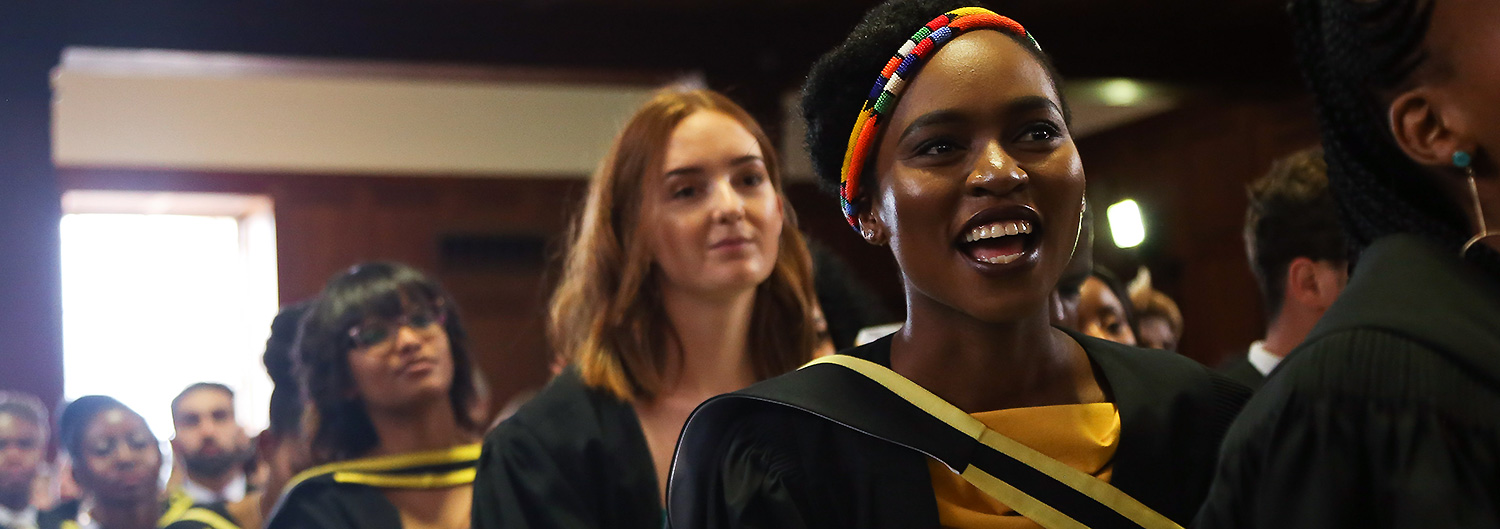
Full ceremony recordings
Creative works and book awards
UCT recognises and celebrates major creative works and outstanding books produced by members of staff at the university.
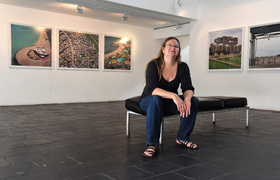
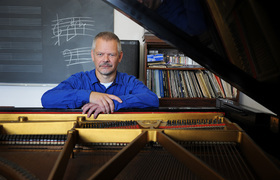
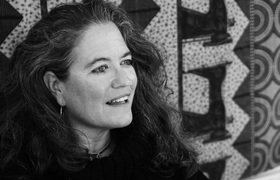
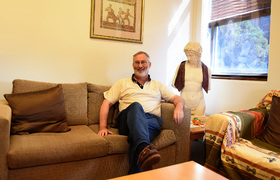
Inspired to achieve
Read about some of our remarkable students who are graduating this season.
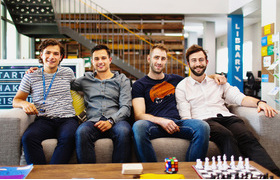
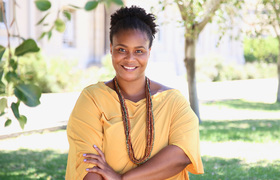
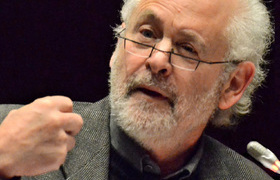
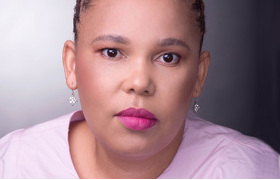
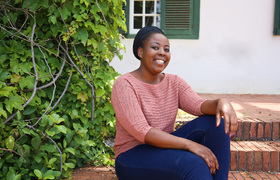
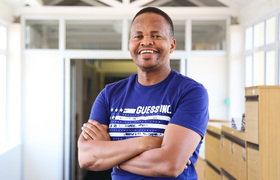
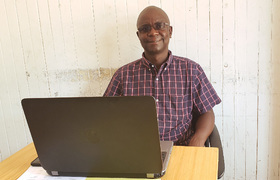
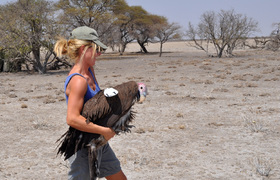
Golden memories
Members of the University of Cape Town’s class of 1968 will reunite to celebrate their Golden Graduation this week. Madi Gray, a veteran of the nine-day Bremner sit-in of 1968, will be among those UCT alumni celebrating this milestone.



